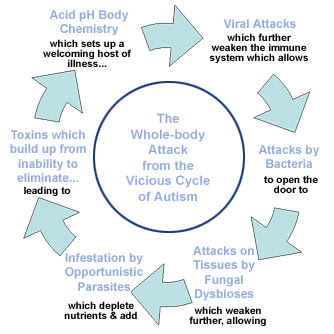WHAT DOES AUTISM MEAN?
Autism (say: aw-tih-zum) causes kids to experience the world differently from the way most other kids do. It's hard for kids with autism to talk with other people and express themselves using words. Kids who have autism usually keep to themselves and many can't communicate without special help.
They also may react to what's going on around them in unusual ways. Normal sounds may really bother someone with autism — so much so that the person covers his or her ears. Being touched, even in a gentle way, may feel uncomfortable.
Kids with autism often can't make connections that other kids make easily. For example, when someone smiles, you know the smiling person is happy or being friendly. But a kid with autism may have trouble connecting that smile with the person's happy feelings.
A kid who has autism also has trouble linking words to their meanings. Imagine trying to understand what your mom is saying if you didn't know what her words really mean. It is doubly frustrating then if a kid can't come up with the right words to express his or her own thoughts.
Autism causes kids to act in unusual ways. They might flap their hands, say certain words over and over, have temper tantrums, or play only with one particular toy. Most kids with autism don't like changes in routines. They like to stay on a schedule that is always the same. They also may insist that their toys or other objects be arranged a certain way and get upset if these items are moved or disturbed.
If someone has autism, his or her brain has trouble with an important job: making sense of the world. Every day, your brain interprets the sights, sounds, smells, and other sensations that you experience. If your brain couldn't help you understand these things, you would have trouble functioning, talking, going to school, and doing other everyday stuff. Kids can be mildly affected by autism, so that they only have a little trouble in life, or they can be very affected, so that they need a lot of help.



No hay comentarios:
Publicar un comentario